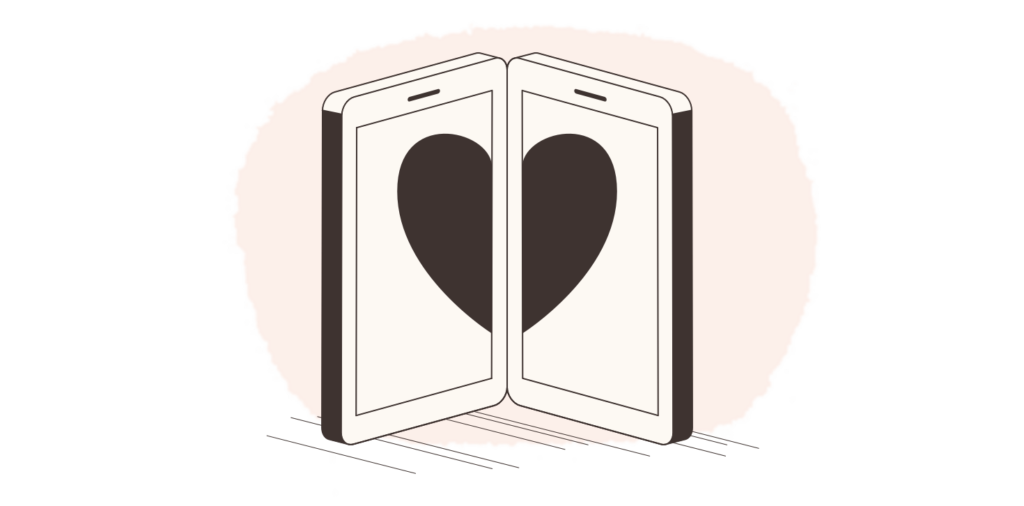As Valentine’s Day approaches, the confines of lockdown have many single people feeling pangs of loneliness this year. Some of those feelings are rooted in very real and basic biological needs, such as personal touch, a sense of belonging, and emotional support. But others stem from misconceptions about dating and false beliefs about ourselves.

Unfortunately, these kinds of assumptions have a tendency to spiral downwards as we spend more time alone and there isn’t anyone to help keep our doubts in check. Even worse, they can become ‘self-fulfilling prophecies’ that create more loneliness.
Below are five of the most common misconceptions and false beliefs about singledom in lockdown that have surfaced in recent months, and ideas for how to counteract them.
“It’s harder for me to be alone than it is for others, and that’s bad”
Different people have different levels of comfort with being alone. These levels stem from factors such as our natural tendency towards introversion or extroversion. They can also shift depending on life stage, or difficult circumstances. The tendencies in themselves are neither good nor bad. But because Western society glorifies self-reliance, we often judge ourselves harshly in times of need when just the opposite is due. It’s a lot more useful to think of our need for others as being on a fluctuating spectrum. Better yet, view that spectrum in relation to your own personal ability. Not as a general outward perception of what self-reliance should look like.
“I’m feeling hopeless over losing critical time to settle down”
This false belief is based on the idea that there is an ideal age to get married or start a family. Many people have been reporting feelings of hopelessness over limited opportunities to meet someone. Women in particular fear missing the window while their biological clocks continue to tick. Objectively, these fears are unfounded in relation to the limitations imposed by the pandemic. Opportunities to date still exist and have even improved on some level (see point 3 below). More importantly, on a subjective level, they can generate anxiety and desperation. This places us on poor grounding from which to explore the opportunity for real connection. Training in an abundance mindset when it comes to finding romantic love can help us feel more positive and confident, two traits that are significantly more likely to help attract what we seek.
“Online dating is too impersonal – it’s not for me”
According to pre-pandemic research from the Pew Research Center for social and demographic trends, most Americans feel that dating has gotten harder over the last decade. Most state ‘difficulty in meeting people’ as a primary reason. While online dating apps solve part of that problem by offering instant access to a pool of potential partners, app users have historically abused this access by bingeing on too many options at once.
It’s the dating version of cognitive overload.
But the pandemic has changed the way people interact with dating software. “Our data is showing that people are being more selective and more intentional about whom they are reaching out to in the first place”, says Amarnath Thombre, CEO of Match Group America, one of the world’s largest online dating service providers and the owners of over a dozen dating apps including Tinder and OkCupid.
That’s good news for those who may have previously gotten lost in the race to swipe left. It’s also a reminder to approach online dating, as anything, with selective attention.
“If the connection doesn’t constantly get deeper, it’s bound to fall apart”
Just as the pandemic has slowed the pace of meeting potential partners, it also slowed the pace at which new relationships can develop. It’s misleading to assume that the potential for real connection depends on quick and constant progression of a relationship. By setting up false expectations, this can prevent a budding relationship from charting a different kind of path – one that may be slower and more meandering.
This kind of slow path to love is supported by research in behavioral neuroscience. Our brains are wired to develop deep attachment at a slower rate than the bells and whistles that we often associate with romance and courtship.
The final false belief in this list is also the linchpin. It pre-dates the current pandemic and will outlive any future ones too. True and lasting connection with another is always based on a solid foundation of self-worth and self-acceptance. Perhaps this time of solitude is calling on us to practice nurturing these kinds of relationships within ourselves.





